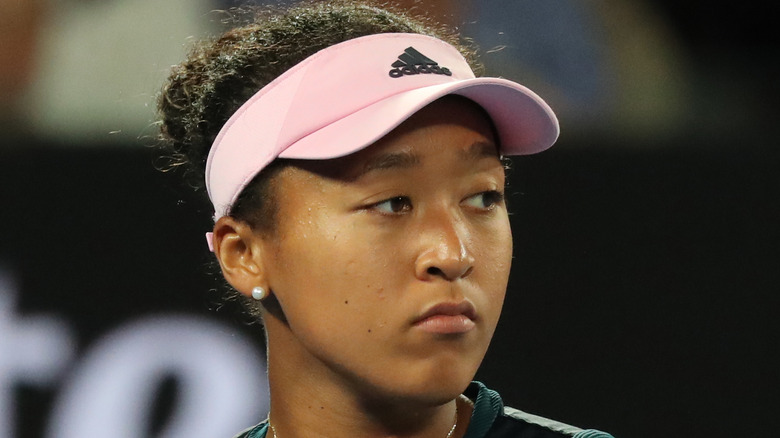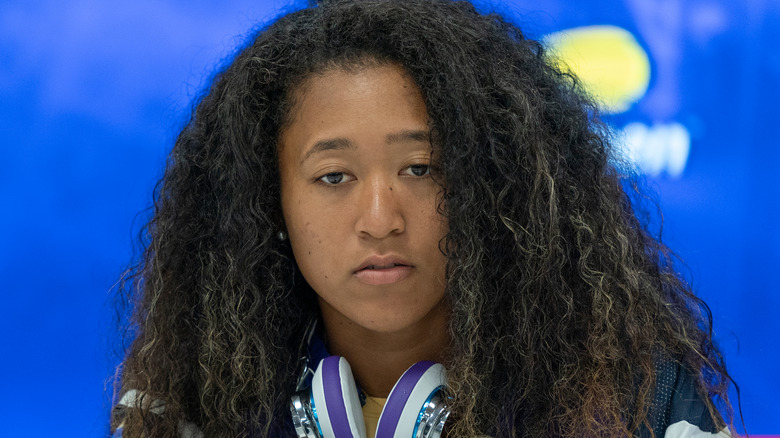What Naomi Osaka's French Open Exit Means For Mental Health In Sports
A day after getting fined $15,000 for failing to appear for a mandatory post-match conference, tennis superstar Naomi Osaka chose to withdraw from the French Open, sending shock waves throughout the sports world (via The Washington Post). As of this writing, Osaka is ranked number two in women's tennis and has had seven career titles by the age of only 23 (via WTA Tennis). Following the announcement, Osaka took to Twitter to let fans know her withdrawal came as an act of self-care, in an effort to protect her own mental health. She wrote, "The truth is that I have suffered long bouts of depression since the US Open in 2018 and I have had a really hard time coping with that."
While Osaka's announcement came as a surprise, she is far from the first athlete to open up about how competitive sports can impact an athletes' mental health. Olympic icon Michael Phelps has been very open about his struggles with anxiety and depression over the past several years and fellow Olympian, gymnast Aly Raisman, has spoken about her post-traumatic stress disorder (via The New York Times).
In Osaka's statement, the tennis star also described how she preemptively announced she would not be participating in mandatory conferences as she was " already feeling vulnerable and anxious" upon arrival in Paris and felt as though tournament guidelines were "outdated." Wanting to be part of the solution for the future, she announced she would be spending time off and away from the tennis court, but she went on to say, " When the time is right I really want to work with the Tour to discuss ways we can make things better for the players, press, and fans."
Others are standing with Naomi Osaka and hoping for change
Naomi Osaka's decision to withdraw was met with praise from fellow athletes. Tennis legend Billie Jean King wrote on Twitter, "It's incredibly brave that Naomi Osaka has revealed her truth about her struggle with depression." NFL player Russell Wilson tweeted his support, writing " We are with you," and Olympic gymnast Laurie Hernandez wrote, "Even though it shouldn't have to be like this, I'm proud of you for putting your foot down. Your mental health matters and should always come first." While the outpouring of support may be overwhelming from fellow athletes, they do not stand alone.
Wellness giant Calm, the company known for its mindfulness meditation app, announced on Wednesday that it would be donating $15,000 to Laureus, a French youth sports charity, as well as paying the standard $15,000 fine for any other tennis players who may want to opt out of post-match conferences due to mental health concerns (via People). The company is making a huge statement by showing its support for any athletes who may be struggling.
While Calm has taken steps in the right direction, Osaka's decision has once again brought to the forefront the real need for a better system of support of athletes, particularly from within the sports arena itself. Professional athletes have long been known to experience anxiety, depression, substance abuse, and more so it remains perplexing to many that tournament guidelines and sporting rules have not changed very much over the past several decades (via BMJ).
If you or someone you know is struggling with mental health, please contact the Crisis Text Line by texting HOME to 741741, call the National Alliance on Mental Illness helpline at 1-800-950-NAMI (6264), or visit the National Institute of Mental Health website.


